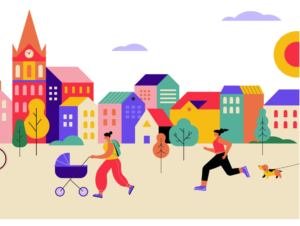The Scottish government has made changes to a housing scheme to make it easier for priority groups to buy their own homes without funding the entire cost.
The Open Market Shared Equity Scheme (OMSE) has been raised by 9% across the country to reflect rising house prices and provide support to those needing help to buy their own home.
Disabled people, first-time buyers, and those on low to medium incomes will pay the biggest share, usually between 60% and 90%, of the home’s cost, while the Scottish government will pay the remainder.
Those approved for the scheme will then have the ‘complete title’ to the home, with their name on the deeds, but will need to pay a mortgage to protect the government’s share.

Housing Secretary Shona Robison said: ‘These are positive changes which will put applicants on a more level playing field with other buyers when purchasing an affordable home.
‘We are well aware of the rise in house prices and we have listened to people’s feedback. That is why we are acting to make the process fairer and to offer a helping hand in challenging times.
‘Our evidence-based approach ensures that the scheme continues to be targeted at priority groups and to ensure that, across Scotland, all areas are able to benefit from a viable scheme with a reasonable number of purchases.
‘The Scottish Government delivered 111,750 affordable homes between 2007 and 2022, with more than 78,000 for social rent. Progress has started towards our next ambitious target of delivering 110,000 affordable homes by 2032, of which 70% will be for social rent and 10% in remote, rural and island communities.’
The OMSE scheme is open for first-time buyers and a range of priority groups, including people aged 60 and over, social renters, disabled people, members of the armed forces, veterans who have left the armed forces within the past two years, and widows and widowers.
Once someone owns the home they have all the same responsibilities as any other homeowner, including paying home contents insurance, building insurance, and keeping on top of repairs and maintenance and council tax.
Homes cannot be bought if they are over a certain maximum threshold price which varies across the country.
Photo by Robert V. Ruggiero


















Leave a Reply